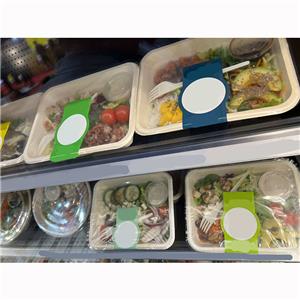Disposable plastic ban: research shows three effective methods
Governments around the world are unilaterally banning plastic products to reduce pollution.
Zimbabwe banned plastic packaging and bottles in 2010. In 2016, Antigua and Barbuda banned disposable food and take-out, and in 2018, the Pacific island country of Vanuatu banned disposable packaging.
The EU bans cotton seedlings, balloon sticks, plastic kitchenware and delivery containers including polystyrene foam.
The British government also announced a ban on the supply of disposable plastic plates, tableware, hot-air balloon sticks, polystyrene cups and containers to British restaurants, cafes and restaurants. The operation will begin in April 2023. The same products sold in supermarkets and stores are not subject to the ban, but will be subject to the new regulations in 2024.
Although the upcoming ban is a step in the right direction, the production, use and disposal of plastics usually involve several countries and continents. The success of a country's policy of restricting the use of plastics should not be taken for granted.
Our research also shows that policies that affect consumer purchases, such as bans, taxes or taxes, cannot solve the global pollution problem. The impact of the ban on disposable plastic products is limited to the case law applicable to the ban, unless the ban results in broader changes in public or commercial practices across international borders.
If there are no supportive measures, or if this ban is not seen as the beginning of the wider abolition of plastics, the ban on certain products will not change people's attitude towards strengthening the disposable culture.
In 2022, the Global Plastic Policy Center of the University of Portsmouth reviewed the global 100-year plastic pollution guide to understand what makes it successful. Here are three important lessons that can make the new English ban more effective.
1. The substitute is easy to use
If consumers and enterprises want to completely eliminate plastics overnight, their chances of complying with the ban will be reduced. It is important to ensure that the company can find affordable alternatives. Antigua and Barbuda achieves this goal by investing in more sustainable materials and listing recognized plastic alternatives, such as bagasse, a by-product of sugarcane processing.
If measures are taken to prevent the increased expenditure from being directly transferred to consumers, it will help maintain public support.
The environmental impact of substitute materials or products should be lower than that of prohibited products, but this is not always guaranteed. Considering the whole life cycle of the product, it may not be a good idea to replace plastic bags with paper.
2. Prohibition stage
The method of gradual prohibition can improve its effectiveness, but it requires consistent and clear communication on which products are prohibited and when. In Antigua and Barbuda, plastic bags will be phased out in 2016 and 2017, and other plastic products will be banned from 2017 to 2018.
In both cases, the import of these products was initially restricted, and then banned from sale, giving suppliers time to find alternatives and replenish existing stocks.
This method has been well applied in the UK's ban on plastic straws, cotton slivers and blenders in 2020, allowing retailers to deplete their inventories within six months after the ban.
3. Public participation
The publicity campaign explains why the ban is necessary, what it means to the public and enterprises, and what alternatives support the ban. Vanuatu proved this point. Due to public concerns about sustainable alternatives, the diaper ban in Vanuatu was postponed.
Such close cooperation with the public can also promote innovation. For example, in 2018, Vanuatu's weaving and artisan communities filled the gap left by the banned plastic bags and foam containers, which are natural substitutes produced locally, including bags woven from palm leaves and food containers.
The ban on disposable plastics may lead to major changes in the social system and the relationship between everyone and plastics.




